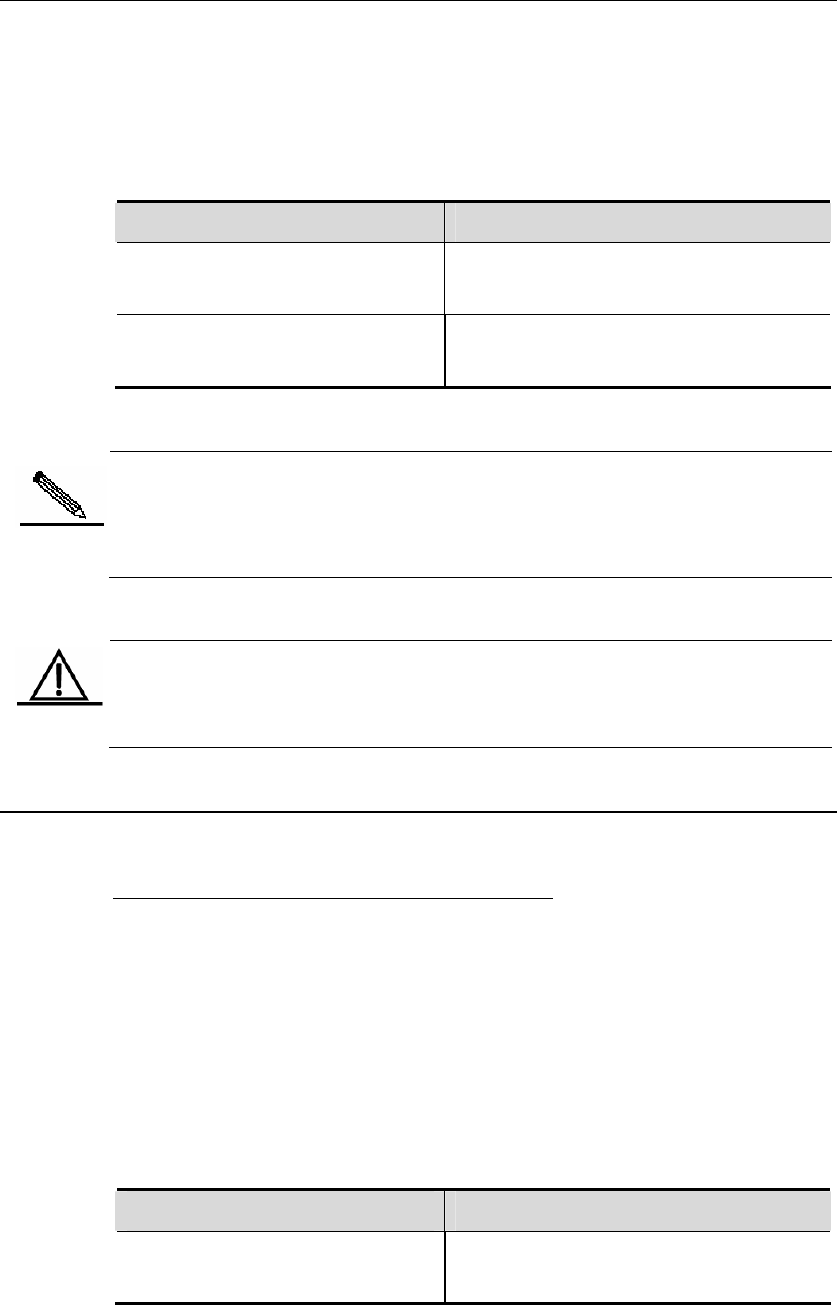
DES-7200 Configuration Guide Chapter 4 OSPF
Configuration
4-28
The incompletemess of route learning and advertisement may lead to the
route loop in the network. OSPF will generate a default route that is destined
to the NULL port to prevent the route loop. The generated default route exists
in the overflow state all the time.
You can configure the overflow memory-lack in the OSPF configuration mode:
Command Function
DES-7200(config)#router ospf
process-id
Enter the OSPF configuration mode.
DES-7200(config-router)#overflow
memory-lack
When the memory lacks, OSPF enters the
overflow state.
Note
By default, OSPF enters the overflow state automatically when the memory
lacks. Use the no overflow memory-lack command to disable OSPF to enter
the overflow state.
Caution
To exit from the overflow state, you must use the clear ip ospf process
command, or restart the OSPF protocol.
4.2.19 Configuring the OSPF Network Management
4.2.19.1 Configuring the OSPFv2 MIB
Binding
The user can only operate a sole OSPFv2 process by SNMP since the OSPFv2
MIB itself does not have the OSPFv2 process information. By default, OSPFv2
MIB is binded with the OSPFv2 process in the smallest number, and all user
operations take effect for this process.
The user can bind OSPFv2 MIB to the process manually if he/she wants to
operate the specified OSPFv2 process by SNMP.
In the routing process configuration mode, execute the following command:
Command Function
DES-7200 (config-router)#enable
mib-binding
Bind the OSPFv2 MIB to the specified
OSPFv2 process.


















